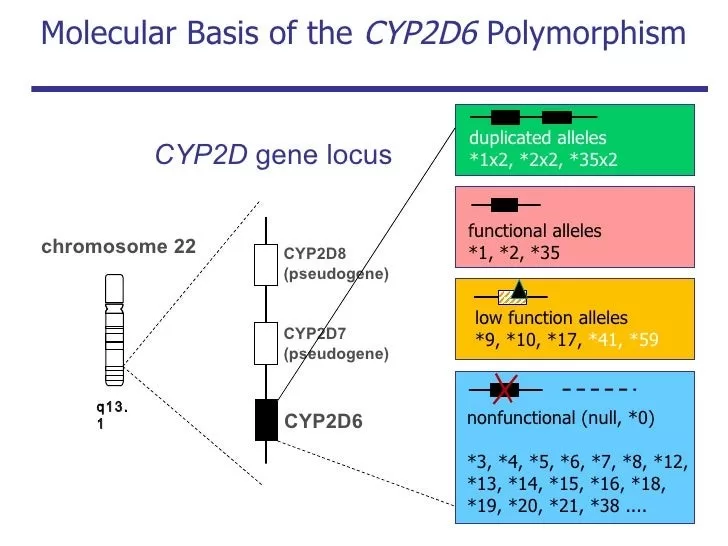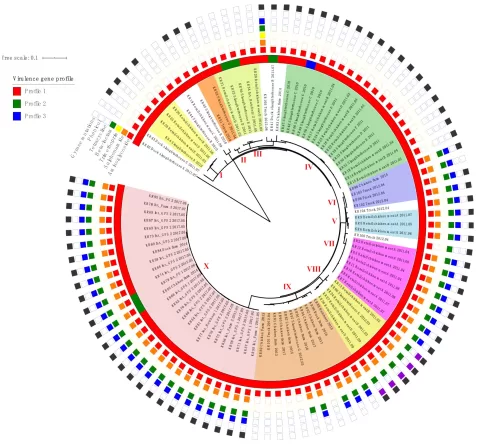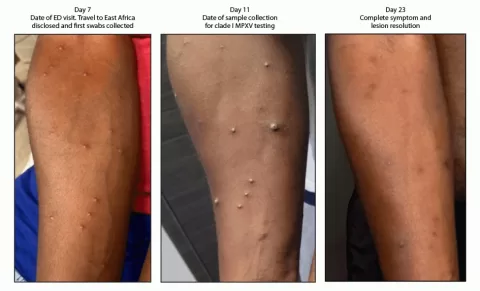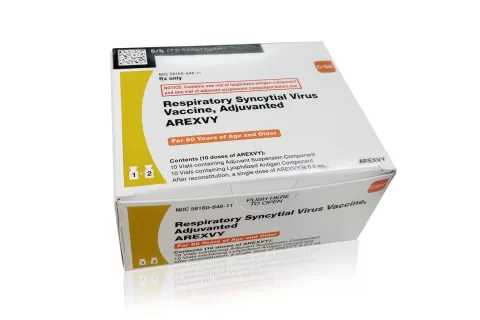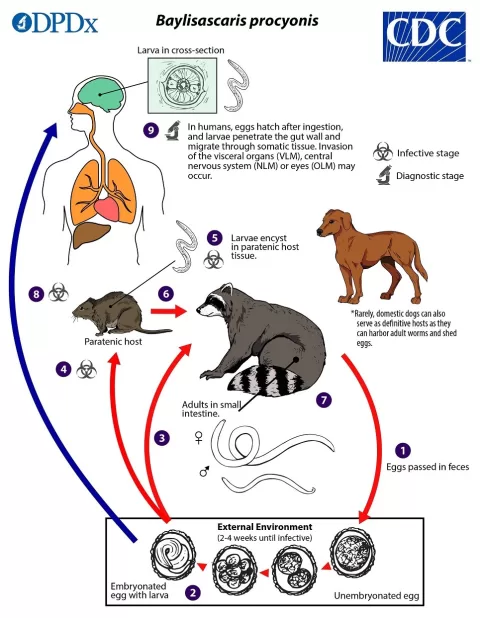The relationship between CYP2D6 genotype and primaquine treatment is crucial in optimizing malaria therapy, particularly in regions like Venezuela where *Plasmodium vivax* is prevalent. As malaria treatment increasingly relies on primaquine’s efficacy, understanding the impact of CYP2D6 polymorphisms is essential for tailored drug prescriptions. Recent studies have indicated that approximately 25% of malaria patients may have intermediate or poor metabolizer phenotypes, greatly influencing their response to primaquine. These findings highlight a significant challenge in effectively managing malaria, especially considering the high incidence rates in Venezuelan territories. Public health initiatives need to address these genetic variations to enhance treatment outcomes and combat malaria effectively.
Exploring the role of genetic variants in the CYP2D6 enzyme is vital for enhancing primaquine therapy, especially for the treatment of malaria caused by *P. vivax*. Understanding these genetic factors, also referred to as CYP2D6 polymorphisms, sheds light on individual responses to malaria medications in endemic areas such as Venezuela. In this context, the distinctions in drug metabolism can significantly affect the overall efficacy of primaquine, a cornerstone in treating hidden liver stages of malaria. Addressing the health implications of these metabolic variations can lead to more effective treatment strategies, therefore improving patient outcomes in the ongoing fight against malaria in vulnerable populations. Through these insights, we can push forward efforts to ensure that malaria treatments are both safe and effective.
Understanding CYP2D6 Polymorphisms in Malaria Treatment
CYP2D6 polymorphisms play a crucial role in the metabolism of various medications, including primaquine, which is important for treating *Plasmodium vivax* malaria. In the context of malaria treatment, particularly in regions like Venezuela, understanding these genetic variations is essential. The presence of different alleles can significantly influence drug metabolism, leading to varied treatment responses among patients. This variability can affect the efficacy of primaquine, as its activation requires metabolic conversion, making it paramount to assess patients’ genotype for tailored treatment approaches.
The study conducted in Sucre State, Venezuela, highlighted that approximately 25% of patients exhibited intermediate or poor metabolizer phenotypes. Such findings indicate the necessity for personalized malaria treatment strategies that consider these genetic differences. Enhanced awareness among healthcare providers regarding CYP2D6 polymorphisms could lead to more effective management of malaria, particularly in endemic regions where *P. vivax* is prevalent.
Primaquine Efficacy and the Role of CYP2D6 Genotype
Primaquine is known to be effective against the hypnozoite stage of *Plasmodium vivax*, which is responsible for relapses in malaria. However, the efficacy of primaquine can be undermined in individuals with certain CYP2D6 genotypes. Patients with intermediate and poor metabolizer profiles may not adequately convert primaquine into its active metabolites, potentially leading to treatment failures and increased recurrence rates of malaria. In the studied cohort, a significant 20.5% of *P. vivax* patients experienced recurrence, shedding light on the implications of CYP2D6 genotyping in clinical settings.
Considering the genetic landscape of the population in Venezuela, public health authorities should prioritize implementing genotyping before prescribing primaquine. By identifying patients likely to have suboptimal drug metabolism, healthcare providers can adjust treatment regimens accordingly, perhaps by increasing the dose of primaquine or considering alternative therapies. Such measures could enhance treatment outcomes and reduce the incidence of malaria resurgence, particularly in vulnerable populations.
The Impact of Malaria Prevalence in Venezuela on Treatment Strategies and CYP2D6 Genotype Awareness
Venezuela is facing a malaria resurgence, with *Plasmodium vivax* accounting for a significant proportion of cases. This increase in malaria prevalence necessitates a reevaluation of current treatment strategies, especially those involving primaquine. Rising rates of resistance and ineffective treatment outcomes can be partially attributed to a lack of awareness regarding CYP2D6 genotype variations among healthcare providers. To address malaria effectively, there is an urgent need for enhanced training and educational resources focused on the genetic factors influencing drug metabolism.
By integrating CYP2D6 genotyping into routine clinical practice, healthcare providers can develop more tailored treatment plans that account for genetic polymorphisms. This individualized approach is critical in ensuring higher efficacy of primaquine treatment, thereby reducing the burden of *P. vivax* malaria. Public health campaigns should be designed to educate both practitioners and patients about the importance of understanding genetic markers in malaria management, thus significantly contributing to improved health outcomes in malaria-endemic regions.
Enhancing Treatment Regimens for *Plasmodium vivax* Malaria
The study’s findings underscore the need to adapt treatment regimens for *Plasmodium vivax* malaria in Venezuela, particularly in light of CYP2D6 genotype information. Given that a substantial percentage of patients exhibit intermediate or poor metabolizer phenotypes, it is prudent for public health authorities to consider increasing the primaquine dosage or even the duration of treatment in affected individuals. This approach aims to enhance the drug’s efficacy, decrease treatment failures, and ultimately minimize the risk of malaria relapses.
Additionally, more extensive research into alternative treatment options and their effectiveness in populations with varying CYP2D6 genotypes could further bolster malaria treatment strategies. Investigating potential adjunct therapies or alternative drugs with better metabolic profiles could provide viable solutions to counteract the limitations imposed by CYP2D6 polymorphisms. In doing so, medical professionals can offer more effective and sustainable management options for patients suffering from *Plasmodium vivax* malaria.
Public Health Implications of CYP2D6 Genotyping for Malaria Treatment
Integrating CYP2D6 genotyping into public health strategies presents a significant opportunity for improving malaria treatment in Venezuela. By understanding the prevalence of various CYP2D6 alleles within the population, health authorities can develop tailored public health guidelines that reflect the metabolic realities faced by malaria patients. Such initiatives would ensure that treatment regimens are optimized for those with genotypes associated with poor drug metabolism, thereby enhancing treatment efficacy and reducing rates of malaria recurrence.
Moreover, public health campaigns that incorporate CYP2D6 genotyping can lead to greater patient engagement and compliance with malaria treatments. Educating patients about the impact of their genetic makeup can empower them to participate more actively in their healthcare decisions, leading to better adherence to prescribed therapies. Ultimately, these combined efforts could lead to a more effective response to the malaria crisis in Venezuela, transforming public health outcomes for vulnerable communities affected by *Plasmodium vivax*.
Recommendations for Malaria Management in Venezuela
In light of the study’s findings regarding CYP2D6 genotypes and their influence on primaquine efficacy, several recommendations can be made for managing *Plasmodium vivax* malaria in Venezuela. First, there is a pressing need for routine screening of CYP2D6 polymorphisms in patients diagnosed with malaria. This strategy would provide critical information for clinicians to make informed decisions regarding the most effective treatment protocols.
Furthermore, public health authorities should invest in raising awareness about the potential benefits of increased primaquine dosing in patients identified as poor or intermediate metabolizers. Policymakers can consider revising current treatment guidelines to reflect these genetic considerations, thereby ensuring that all patients receive evidence-based care that maximizes treatment efficacy and diminishes relapse rates of *P. vivax*. Enhanced training for healthcare providers on the implications of genetic variations will also support these efforts.
The Importance of Ongoing Research in Malaria Treatment
Ongoing research is critical in understanding the complexities surrounding malaria treatment and the role of genetic factors such as CYP2D6 polymorphisms. As the landscape of malaria evolves, particularly in endemic areas like Venezuela, new findings can inform treatment protocols and public health policies. Continuous investigation into the interactions between genetic variations and antimalarial medications could unveil further insights that enhance the clinical outcomes for patients with *Plasmodium vivax* malaria.
Moreover, research should not only focus on CYP2D6 but also explore additional genetic markers that might affect primaquine metabolism. Collaboration between researchers, clinicians, and public health officials is essential to develop comprehensive frameworks for discussing and implementing personalized medicine in malaria management. Collectively, these efforts will contribute to reducing the burden of malaria and improving health outcomes in affected communities.
Global Perspectives on Malaria Treatment Adaptations
The challenges faced in treating *Plasmodium vivax* malaria in Venezuela are mirrored in various malaria-endemic regions worldwide. Understanding how CYP2D6 polymorphisms affect treatment efficacy opens a broader discussion on the need for global adaptations in malaria management. Public health initiatives must transcend local limitations by fostering international collaborations aimed at sharing knowledge and best practices in combating malaria.
As researchers and healthcare providers globally gain insights into the intersection of genetics and pharmacology, adapting treatments to individuals’ genetic backgrounds will likely become a cornerstone of effective malaria management. By encouraging global dialogue and research on personalized medicine approaches in malaria treatment, countries can work together to mitigate the impacts of *Plasmodium vivax* and improve patient outcomes universally.
Future Directions for Malaria Control in Venezuela
As Venezuela continues to grapple with rising malaria cases, innovative approaches to treatment are paramount. Future directions should emphasize the integration of genetic research, particularly focused on CYP2D6 polymorphisms and their influence on primaquine efficacy. Health authorities must prioritize funding for studies that explore genetic screening as a standard part of malaria care, ensuring that treatments are appropriately tailored to the patient population.
In addition, future strategies should include the development of public health policies based on genetic data that inform treatment protocols and dosage guidelines. By considering genetic variability, stakeholders can enhance the efficacy of primaquine and reduce malaria resurgence in Venezuela. Such initiatives not only represent a shift toward more personalized medicine but also symbolize a commitment to addressing the public health challenges posed by malaria in an evidence-based manner.
Frequently Asked Questions
What is the role of CYP2D6 genotype in primaquine efficacy for treating malaria?
The CYP2D6 genotype plays a crucial role in the efficacy of primaquine, a medication used to treat *Plasmodium vivax* malaria. Variants in the CYP2D6 gene, known as CYP2D6 polymorphisms, can affect how well patients metabolize primaquine. Individuals with poor or intermediate metabolizer phenotypes may experience reduced effectiveness of primaquine, increasing the risk of malaria recurrence.
How do CYP2D6 polymorphisms affect malaria treatment outcomes in Venezuela?
In Venezuela, CYP2D6 polymorphisms significantly influence malaria treatment outcomes, particularly for *P. vivax*. A study found that around 25% of patients had nonfunctional CYP2D6 alleles, leading to poor metabolizer phenotypes. This can compromise primaquine efficacy and contribute to the recurrence of malaria.
Why is primaquine important in treating *Plasmodium vivax* malaria?
Primaquine is critical in treating *Plasmodium vivax* malaria as it targets hypnozoites, the dormant liver stages of the parasite that can cause relapses. To optimize primaquine efficacy, understanding a patient’s CYP2D6 genotype is essential, as genetic variations can significantly influence drug metabolism.
What were the metabolizer profiles observed in patients with malaria in the study from Venezuela?
In the study conducted in Venezuela, among 44 malaria-positive patients, 75% exhibited a normal metabolizer profile for CYP2D6. However, 20.8% were classified as intermediate metabolizers, and 4.19% as poor metabolizers, highlighting the variability in drug response which can affect primaquine treatment outcomes.
How does the CYP2D6 genotype influence the recommendations for primaquine dosage in malaria patients?
Given the influence of CYP2D6 genotype on primaquine metabolism, healthcare providers may need to consider adjusting the dosage of primaquine for patients with intermediate or poor metabolizer phenotypes, particularly in regions like Venezuela where the prevalence of these phenotypes is notable. Increasing primaquine dosage may enhance treatment efficacy and decrease the likelihood of malaria recurrence.
What are the public health implications of CYP2D6 genotyping for malaria treatment in Venezuela?
The public health implications of CYP2D6 genotyping in Venezuela include the potential for personalized malaria treatment strategies. By identifying patients with poor or intermediate metabolizer profiles, healthcare systems can tailor primaquine dosages, potentially improving treatment outcomes and reducing malarial recurrences in endemic regions.
What is the connection between primaquine efficacy and the incidence of malaria recurrence?
The connection between primaquine efficacy and the incidence of malaria recurrence lies in the drug’s ability to adequately clear *Plasmodium vivax* from the liver. Patients with suboptimal primaquine metabolism due to CYP2D6 polymorphisms may not fully eradicate the hypnozoites, which increases the likelihood of malaria recurrence, as evidenced by the study findings in Venezuela.
| Aspect | Details |
|---|---|
| Study Location | Cumaná, Sucre State, Venezuela |
| Sample Size | 96 patients with suspected malaria |
| Target Population | Patients exhibiting symptoms of malaria |
| Malaria Types | Mainly *Plasmodium vivax* |
| CYP2D6 Genotype Findings | – 75% normal metabolizers – 20.8% intermediate metabolizers – 4.19% poor metabolizers |
| Recurrence in Patients | 9 out of 44 experienced recurrence of *Plasmodium vivax* (20.5%) |
| Public Health Recommendation | Evaluate increasing primaquine doses for treatment efficacy |
Summary
CYP2D6 Genotype and Primaquine are critical factors in the effective treatment of malaria, particularly in regions like Venezuela where *Plasmodium vivax* is prevalent. This study highlights the significant variability in CYP2D6 metabolizer phenotypes among malaria patients, which can affect treatment outcomes with primaquine. Given that approximately 25% of patients displayed nonfunctional alleles, it is essential for public health authorities to consider optimizing primaquine dosages to enhance therapeutic effectiveness and reduce recurrence rates of malaria.
The content provided on this blog (e.g., symptom descriptions, health tips, or general advice) is for informational purposes only and is not a substitute for professional medical advice, diagnosis, or treatment. Always seek the guidance of your physician or other qualified healthcare provider with any questions you may have regarding a medical condition. Never disregard professional medical advice or delay seeking it because of something you have read on this website. If you believe you may have a medical emergency, call your doctor or emergency services immediately. Reliance on any information provided by this blog is solely at your own risk.



